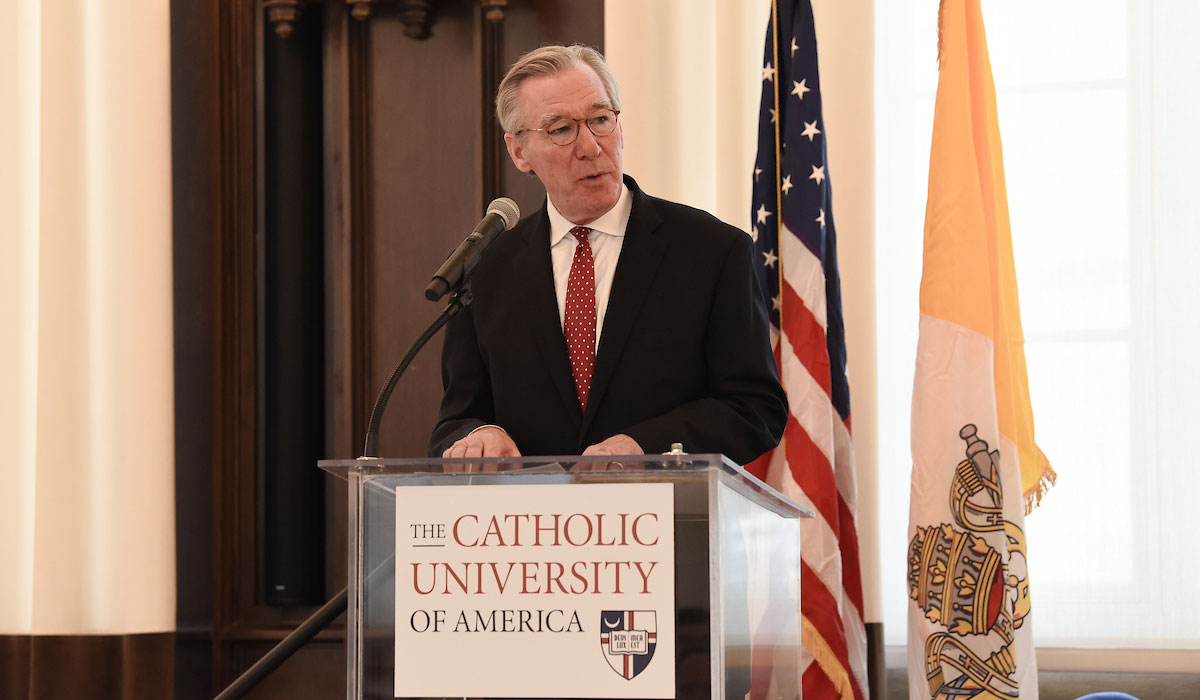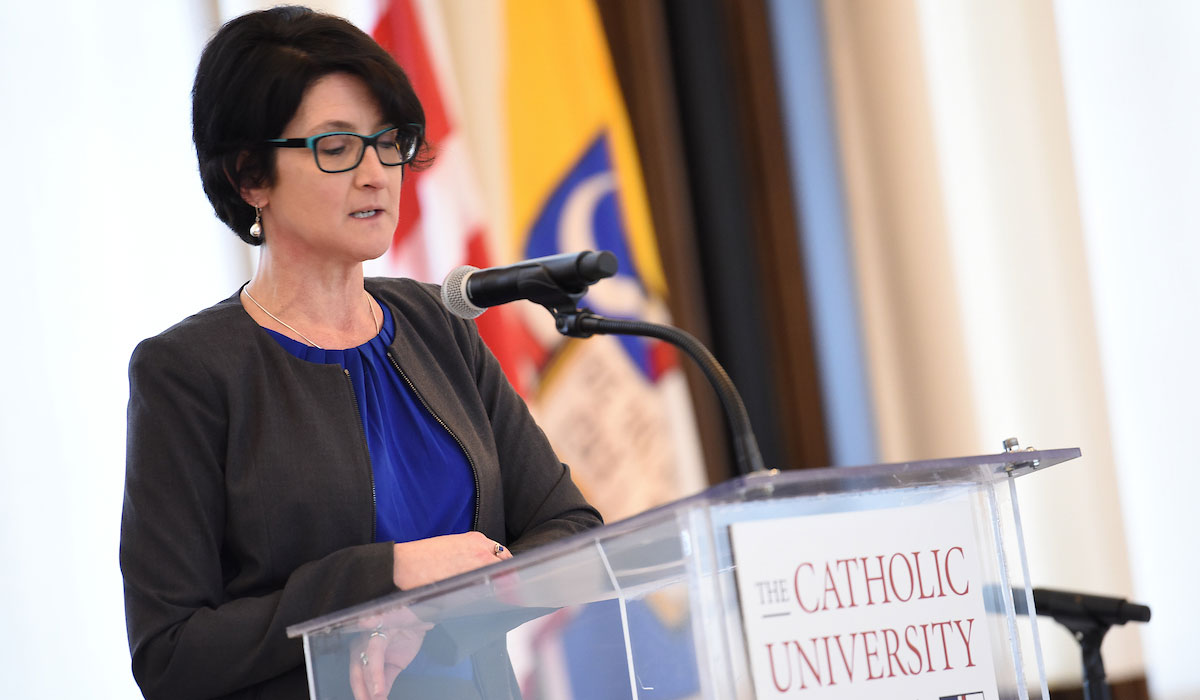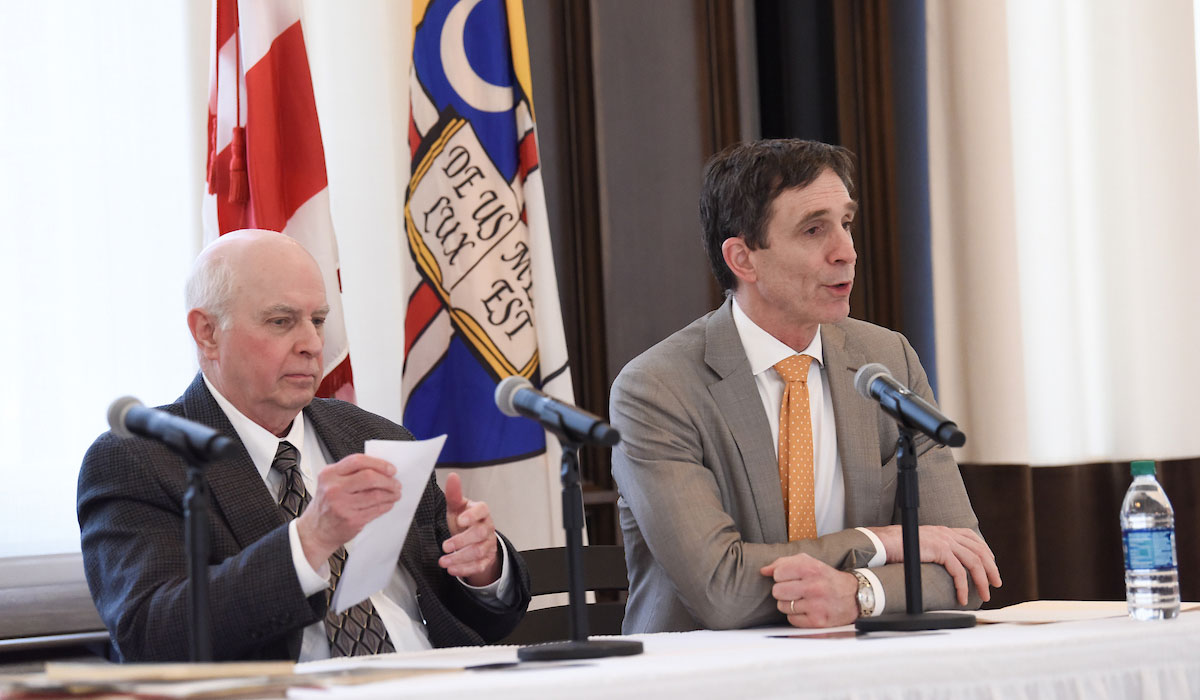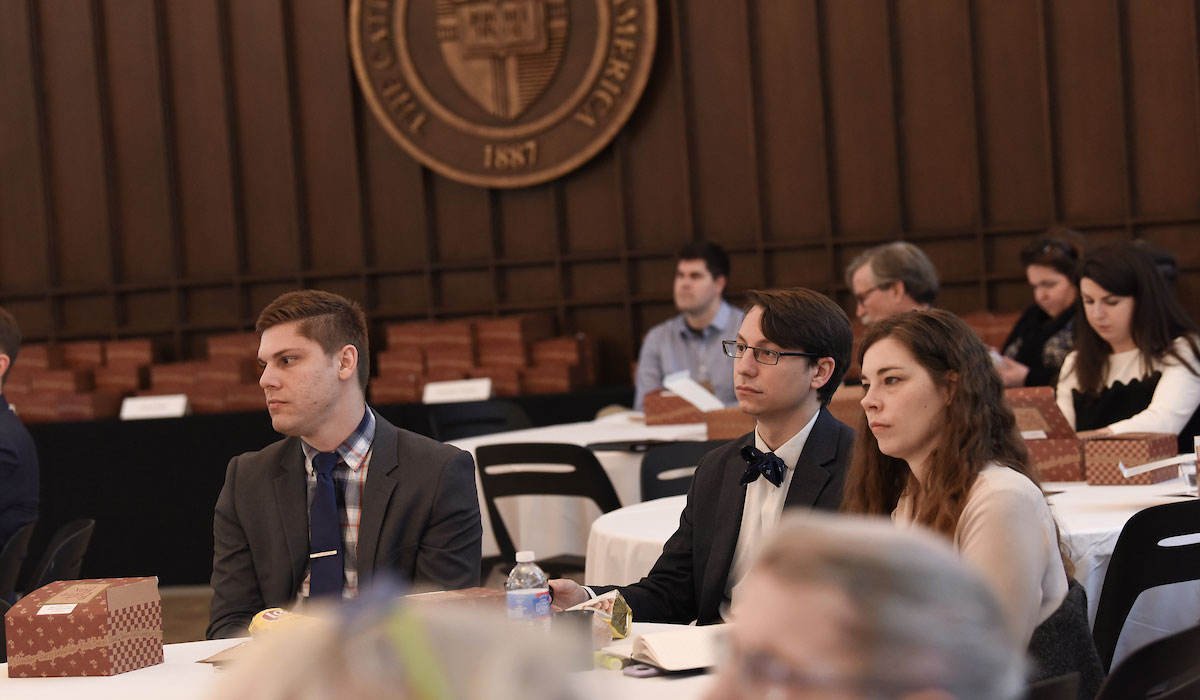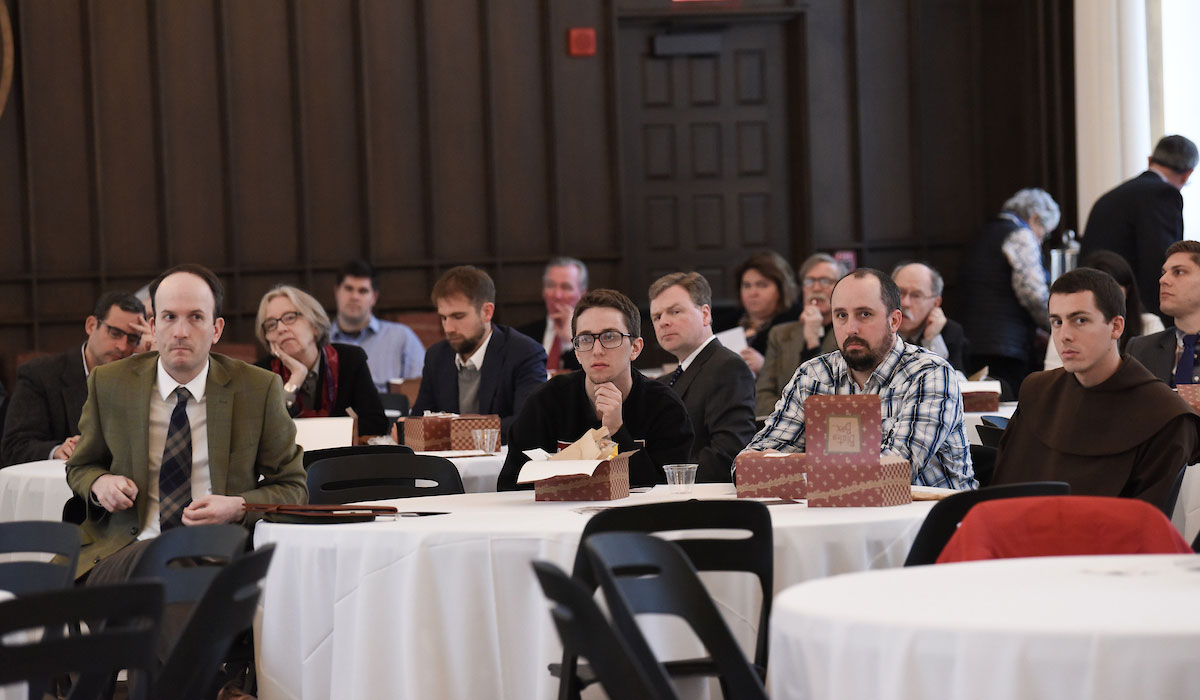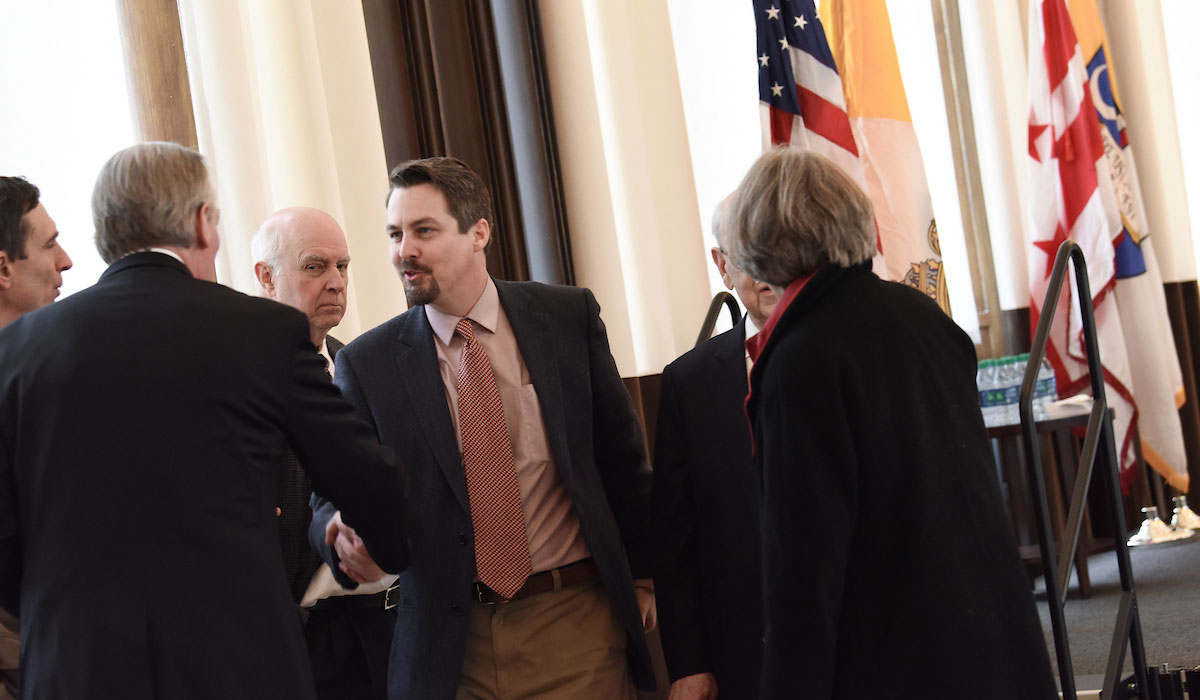
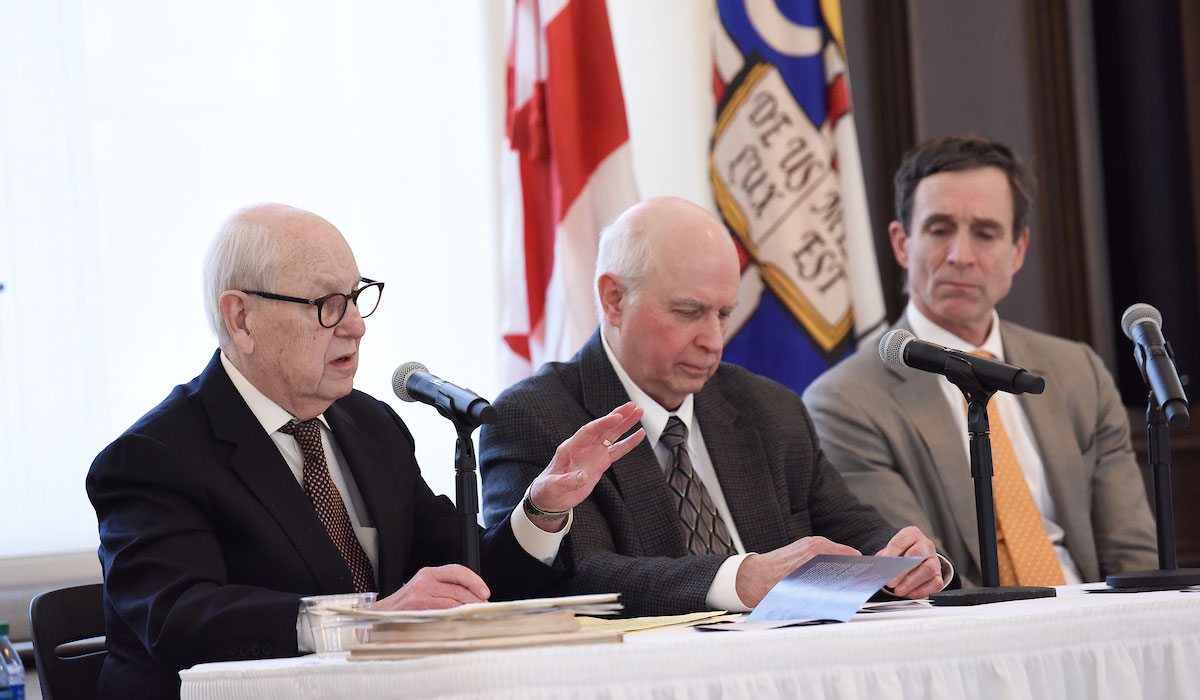
Rev. Richard John Neuhaus, founder of the Institute for Religion and Public Life and its magazine, First Things, was the subject of a half-day symposium at The Catholic University of America earlier this month.
“Catholic Witness in the Public Square: Celebrating the Life and Letters of Father Richard John Neuhaus” offered an opportunity to reflect on the tremendous gift of the Neuhaus papers — a collection of correspondence, publications, and photos — to the American Catholic History Center and University Archives at Catholic University.
The cataloging of the nearly 100 boxes of items in the collection has recently been completed. President John Garvey noted that the University is thrilled to be the recipient and home base for the collection.
“Many of you knew Father Neuhaus,” Garvey told attendees at the March 7 event. “Some of you were his closest friends. The range of his contacts was vast — broad enough to include me. They also included the most influential scholars and public intellectuals of his time.
“So it is fitting and useful to house his writings here at a university, especially this one, where they can continue to be a part of the conversation he took such joy in. We already have doctoral students at Catholic University writing dissertations about his work. I hope having his papers here will encourage more of this.”
Maria Mazzenga, University education archivist, shared details about the collection that is now available to the public, which includes four parts: correspondence, publications and writings, photographs, and family and personal items.
Robert Louis Wilken, author at First Things, Distinguished Fellow of the St. Paul Center for Biblical Theology, and William R. Kenan Jr. Professor of the History of Christianity at the University of Virginia, recalled his long friendship with Father Neuhaus with personal detail.
In the fall of 1961, Father Neuhaus, then a Lutheran minister, was assigned to the ministry at the Evangelist Lutheran Church, a poor inner-city congregation in Brooklyn. He wrote Wilkin a 21-page letter recounting the hardship of his pastoral work. He shared with heartbreaking detail the story of a baby boy born, unwanted by his mother, who would be turned over to the city. “Little Baby Boy Washington, fear not, you are not alone,” Father Neuhaus wrote.
This work brought a “new dimension to his vocation” as he became active in the Civil Rights Movement, said Wilken.
Father Neuhaus, who marched with Martin Luther King Jr. at Selma, also became an anti-war activist in the 60s. By the 1980s, he found his place in the intellectual right, and in 1984 founded the Center for Religion and Society. In 1990, the institute published its first issue of First Things. That same year, Father Neuhaus was received into the Catholic Church by John Cardinal O’Connor.
As editor of First Things, Father Neuhaus wrote two widely respected and influential columns “The Public Square” and “While We’re At It.” He became an active defender of the unborn through the Pro-Life Movement, and he had personal ties to the Vatican and the Washington establishment, serving as advisor to Presidents Ronald Reagan and George W. Bush. He served as editor of First Things until his death from cancer in 2009 at age 72.
Three panel discussions during the symposium featured speakers who knew and respected him.
They spoke about the influence Father Neuhaus had on their careers as writers. They quoted from some of his best-known writings, most notably “We Shall Not Weary, We Shall Not Rest,” a speech he gave at the close of the 2008 convention of the National Right to Life Committee.
“… Nobody is a nobody; nobody is unwanted. All are wanted by God, and therefore to be respected, protected, and cherished by us.
“We shall not weary, we shall not rest, until every unborn child is protected in law and welcomed in life. We shall not weary, we shall not rest, until all the elderly who have run life’s course are protected against despair and abandonment, protected by the rule of law and the bonds of love. We shall not weary, we shall not rest, until every young woman is given the help she needs to recognize the problem of pregnancy as the gift of life. We shall not weary, we shall not rest, as we stand guard at the entrance gates and the exit gates of life, and at every step along the way of life, bearing witness in word and deed to the dignity of the human person — of every human person. …”
The speech was delivered on July 11, 2008, six months before he died. “There was a pleading in that speech,” said Lopez. “He made use of all his days. He was at his best until he had no days left.”
